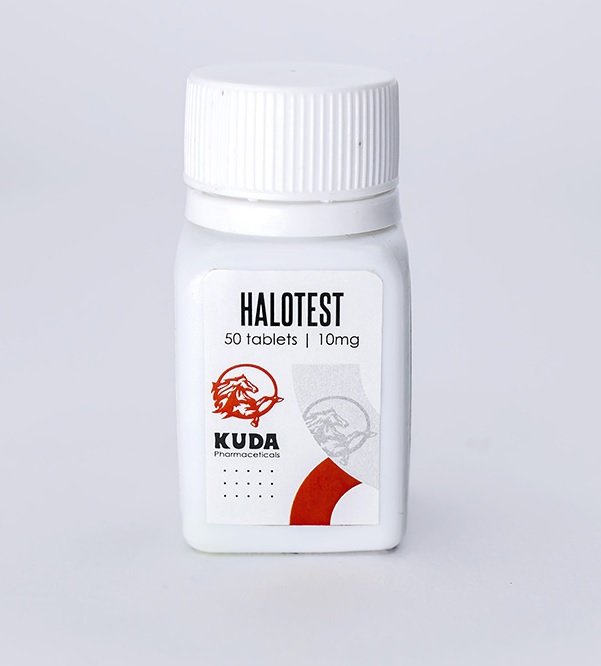Halotest
About Halotest
Fluoxymesterone used in hypogonadal males to induce normal growth and development of the male sex organs and for maintenance of secondary sex characteristics. Effects also include growth and maturation of prostate, seminal vesicles, penis, and scrotum; development of male hair distribution, such as beard, pubic, chest, and axillary hair; laryngeal enlargement; vocal cord thickening; alterations in body musculature; and fat distribution. Therefore, main indications for fluoxymesterolone are: primary hypogonadism (congenital or acquired) – testicular failure due to cryptorchidism, bilateral torsion, orchitis, vanishing testis syndrome, or orchidectomy; hypogonadotropic hypogonadism (congenital or acquired) – idiopathic gonadotropin or luteinizing hormone-releasing hormone (LHRH) deficiency, or pituitary-hypothalamic injury from tumors, trauma, or radiation.
Metastatic mammary cancer – may be used secondarily in women with advancing inoperable metastatic (skeletal) mammary cancer who are one to five years postmenopausal. Primary goals of therapy in these women include ablation of the ovaries.


